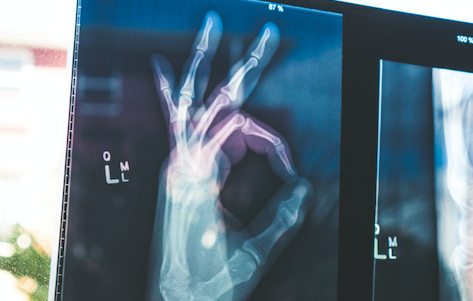The health-care to self-care challenge
A transition from health-care to self-care should be really positive.
In theory, it shifts the locus of control to the consumer; it has an inherent sense of empowerment and thriving; and it sits well with the old adage of prevention is better than cure. Millennials are already highly involved in self care – as evidenced in their healthier lifestyles and emphasis on body sculpting and grooming. Moreover, medical research shows more positive health outcomes are associated with patients actively taking ownership of their health and treatment rather than abdicating responsibility to health professionals.
However, the transition to self-care can be challenging
In the age of the internet, we are overwhelmed with information. There are so many sources, beliefs, fads and conspiracy theories that it’s increasingly difficult to know where to turn and who to trust. In an overwhelmed state, we turn back to healthcare experts as an authoritative source of clarity . . . and, low and behold, we’re back to health-care rather than self-care.
Even worse, in a climate where health professionals are over-stretched, they are not available to provide the clarity consumers seek, leaving them with nowhere to turn. Feeling abandoned, consumers risk falling into a state of passivity about their health which further feeds negative health outcomes.
And of course, we’re only human – with deep psychological and social processes that serve to further undermine self-care. For example in oral care, the stigma associated with dentures and associated products can reduce usage, and so undermine self-care. At the same time, a dentist’s ego can prevent them advocating fixative products – because doing so tacitly suggests the denture they fitted won’t stay in place. And in the world of pain, sufferers may not identify with a pain relief category they perceive to be for the old and infirm
So, what’s the role for brands?
There’s an opportunity for brands that truly recognise the challenges consumers face & help them transition from health-care to self-care.
Brands that demonstrate they empathise with the challenges and provide meaningful solutions benefit from building powerful emotional connections with target consumers
The problem is initiatives are frequently too medical or tech led
Brands are developing product ranges, apps and websites that seek to give consumers the information and tools they need for self-care. The expertise and technology employed can be truly inspiring. However, the solutions on offer frequently fail to take sufficient account of the all important human experience – and so risk failing consumers.
Consumers need more human-centric solutions. They need initiatives more rooted in an holistic model of health that truly integrates the psychological and social factors at play that can drive uptake and successful usage.
Our solution
Our human-centred approach to developing self-care brings the missing psychological and social dimension firmly into the mix. We work with a psychotherapist early in the process to provide an ‘under the skin’ human perspective. This uncovers the human processes influencing self-care behaviour –establishing the biases, stigmas, taboos and denial mechanisms that feed a passive approach to health and identifying the sources of motivation that drive engagement with a more pro-active self-care mentality.
The result is a much more rounded, human-centred strategy for self-care that truly helps consumers and demonstrates the empathy brands need to build a strong emotional connection with their targets
